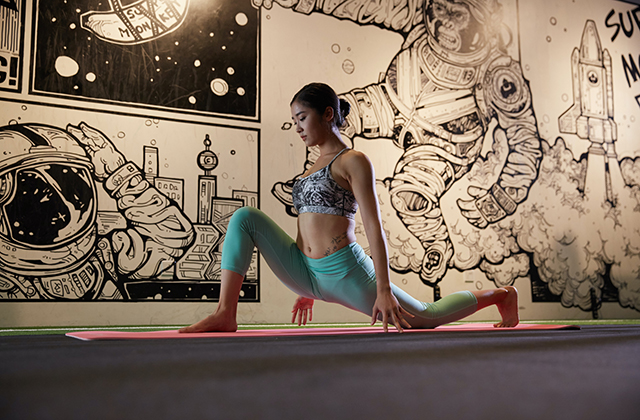Pilates is a total body workout that focuses on strength, flexibility and coordination. The exercise moves are slow and controlled, making it easier for you to learn the movements. Pilates Northern Beaches helps their student athlete develop their core and flexibility which they can use it in their sports.
Pilates strengthens your core muscles, which are important for stabilizing the spine and pelvis. It can also help relieve lower back pain and improve posture.
The practice of Pilates has many benefits for your digestion system. It improves digestion by strengthening the muscles in your abdomen — namely the transverse abdominis muscle, which runs horizontally around your waistline. This muscle attaches at both ends of your spine and acts as a girdle around the midsection to support proper alignment of your spine while you move through life’s daily activities.
If you have chronic digestive problems or suffer from bloating, constipation or diarrhea, Pilates may be just what you need to feel better!
Pilates is primarily focused on developing the core muscles of the body, which include the hips and abdomen. The exercises are performed while lying on the floor or standing with your feet flat on the ground.
Pilates is known for its emphasis on proper breathing technique, which helps increase lung capacity and improve core stabilization.
You might think of Pilates as a low-impact exercise because it doesn’t involve much jumping or running. But you’ll likely be working hard enough during your workout to make it count as a moderate-intensity activity. You should aim for at least 150 minutes of moderate-intensity aerobic physical activity each week (or 75 minutes per day).
What is gut health?
Gut health is the state of the digestive system, including the mouth, esophagus, stomach, small intestine and large intestine.
The digestive system is responsible for taking food and turning it into nutrients that our bodies can use. The gut also plays an important role in getting rid of waste products that are produced as a result of digestion.
When we talk about gut health, we’re talking about how well this process works. If your gut isn’t working properly, it can lead to a number of health problems.
Pilates is a form of exercise that focuses on core strength, flexibility and balance. It’s been around since the early 20th century, when Joseph Pilates developed his system of exercises.
Pilates can help improve your posture, balance and coordination. It also improves flexibility and strength in the body’s core muscles.
Pilates can help improve your gut health because it strengthens your abdominal muscles and helps you sit up straight with good posture. This helps prevent extra pressure on your digestive system and increases blood flow to the digestive tract.
The following are some ways that pilates improves gut health:
Improves digestion: Pilates helps strengthen the abdominal muscles and encourages good posture, which can reduce constipation by allowing for better digestion to occur without strain or stress on the body’s organs.
Strengthens pelvic floor muscles (PCs): A strong PC muscle is important for bowel control and good bowel health. Pilates strengthens these muscles through exercise programs designed specifically for them, such as squats and bridges that target this area specifically.
How does Pilates benefit digestion?
Pilates can help improve digestion by strengthening muscles in the abdomen, which improves posture and balance. A strong core helps with digestion because it makes it easier for food to move through your system; therefore, less stress is put on your digestive tract when you’re eating or moving around after eating. This reduces bloating, abdominal pain and constipation.
The abdominal muscles are part of our involuntary nervous system (involuntary means they don’t require conscious thought). This means they automatically contract when we’re going through a stressful situation such as an argument with our spouse or if someone cuts us off while driving. This can cause abdominal cramps or pain if these muscles get overworked due to stress or poor posture habits like sitting at a desk all day hunched over a computer screen or carrying heavy things.
